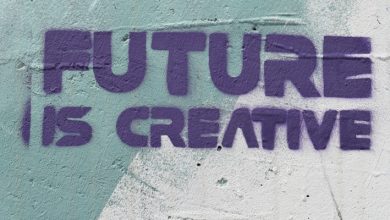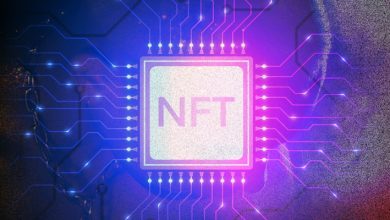Musicians Embrace NFTs: Transforming the Music Industry

- Understanding NFTs and their impact on the music industry
- How musicians are leveraging NFTs to connect with fans in new ways
- Exploring the potential for NFTs to revolutionize music distribution
- The rise of NFT music platforms: A game-changer for artists
- Navigating the challenges and opportunities of NFTs in the music business
- Case studies: Musicians who have successfully embraced NFTs
Understanding NFTs and their impact on the music industry
NFTs, or Non-Fungible Tokens, have been making waves in the music industry in recent years. These digital assets represent ownership or proof of authenticity of a unique item or piece of content, such as music albums or merchandise. Musicians are increasingly embracing NFTs as a way to connect with their fans and monetize their work in new and innovative ways.
One of the key impacts of NFTs on the music industry is the ability for artists to create exclusive and limited-edition content for their fans. By minting NFTs of unreleased tracks, concert tickets, or even virtual meet-and-greets, musicians can offer their supporters a one-of-a-kind experience that cannot be replicated. This exclusivity can drive up demand and value for these digital assets, creating new revenue streams for artists.
Moreover, NFTs provide a way for musicians to directly engage with their fan base and build a loyal community around their work. By selling NFTs through blockchain technology, artists can interact with fans in a decentralized and transparent manner, cutting out intermediaries and ensuring that the value of their creations goes directly to them. This direct connection can foster a sense of belonging and support among fans, leading to a more sustainable and independent music career for artists.
In addition, NFTs offer a way for musicians to experiment with new forms of creative expression and collaboration. Through collaborations with digital artists, designers, or even other musicians, artists can create unique multimedia NFTs that combine music, visual art, and technology in exciting ways. These collaborations can attract new audiences and expand the reach of an artist’s work beyond traditional music platforms.
Overall, NFTs have the potential to revolutionize the music industry by empowering artists to take control of their creative output, connect with their fans on a deeper level, and explore new avenues for artistic expression. As more musicians embrace NFTs and incorporate them into their creative process, we can expect to see a shift towards a more decentralized, inclusive, and innovative music ecosystem in the years to come.
How musicians are leveraging NFTs to connect with fans in new ways
Musicians have found a new way to engage with their fans through the use of Non-Fungible Tokens (NFTs). These digital assets are revolutionizing the music industry by allowing artists to create unique and exclusive content for their followers. By leveraging NFTs, musicians can offer limited edition music, artwork, and experiences that cannot be replicated. This direct connection with fans not only generates revenue but also fosters a sense of community and loyalty among supporters.
Through NFTs, musicians can offer fans a chance to own a piece of their favorite artist’s work. This could be a special edition album, a virtual concert experience, or even a one-on-one video call. By creating scarcity and exclusivity, artists can drive up demand for their NFTs and create a new revenue stream outside of traditional music sales and streaming platforms. Fans are eager to support their favorite musicians in this innovative way, knowing that they are receiving something truly unique in return.
Furthermore, NFTs allow musicians to tap into the burgeoning world of cryptocurrency and blockchain technology. By embracing this new digital frontier, artists can reach a global audience of tech-savvy fans who are eager to explore the possibilities of NFTs. This intersection of music and technology opens up endless opportunities for creativity and collaboration, pushing the boundaries of what is possible in the music industry.
In conclusion, the rise of NFTs is transforming the way musicians connect with their fans. By offering exclusive and unique content through digital assets, artists can forge deeper relationships with their supporters and create new revenue streams. The music industry is evolving, and those who embrace this change are poised to thrive in this new digital landscape.
Exploring the potential for NFTs to revolutionize music distribution
Exploring the potential for Non-Fungible Tokens (NFTs) to revolutionize music distribution opens up a world of possibilities for musicians. NFTs are digital assets that represent ownership of unique items or content on the blockchain, offering a new way for artists to connect with their fans and monetize their work.
By tokenizing music, artists can create limited edition copies of their songs or albums, allowing fans to purchase exclusive rights to the content. This not only provides a new revenue stream for musicians but also gives fans a sense of ownership and exclusivity that goes beyond streaming or physical purchases.
Furthermore, NFTs can be programmed with smart contracts that ensure artists receive royalties every time their music is resold, providing a more equitable distribution of income. This could potentially revolutionize the music industry by giving artists more control over their work and a greater share of the profits.
The rise of NFT music platforms: A game-changer for artists
NFT music platforms are revolutionizing the music industry, offering a new way for artists to connect with their fans and monetize their work in a digital landscape. These platforms use blockchain technology to create unique, non-fungible tokens that represent ownership of a piece of music. This allows musicians to sell exclusive rights to their music, as well as create limited edition collectibles that can be bought and traded.
One of the key advantages of NFT music platforms is the ability for artists to retain more control over their work and directly engage with their fan base. By cutting out the middleman, musicians can earn a larger share of the profits from their music sales and establish a more direct relationship with their supporters. This shift in the music industry has the potential to empower artists and democratize the way music is created, distributed, and consumed.
Additionally, NFT music platforms offer a new way for artists to experiment with different revenue streams and business models. Musicians can release music in the form of NFTs, allowing fans to purchase unique digital assets that come with perks such as access to exclusive content, virtual meet-and-greets, and even a share of future royalties. This innovative approach to music distribution opens up new possibilities for artists to monetize their creativity and build a sustainable career in the digital age.
Navigating the challenges and opportunities of NFTs in the music business
Navigating the challenges and opportunities of NFTs in the music business can be a daunting task for musicians looking to capitalize on this emerging trend. While NFTs offer a unique opportunity for artists to connect with fans and monetize their work in new ways, there are also challenges to consider.
One of the main challenges musicians face when diving into the world of NFTs is understanding the technology behind them. NFTs are based on blockchain technology, which can be complex and intimidating for those unfamiliar with it. However, once musicians take the time to educate themselves on how NFTs work, they can leverage this knowledge to their advantage.
Another challenge is the potential for copyright infringement when selling NFTs. Musicians must ensure that they have the rights to the music or artwork they are selling as an NFT to avoid legal issues down the line. This requires careful attention to detail and thorough documentation to protect their intellectual property.
Despite these challenges, there are numerous opportunities for musicians in the world of NFTs. NFTs allow artists to create unique, limited-edition pieces of digital art that can be sold directly to fans, cutting out the middleman and increasing their profits. Additionally, NFTs can provide a new revenue stream for musicians, allowing them to monetize their music in innovative ways.
In conclusion, navigating the challenges and opportunities of NFTs in the music business requires a combination of education, attention to detail, and creativity. By overcoming the obstacles and embracing the potential of NFTs, musicians can transform the music industry and connect with fans in exciting new ways.
Case studies: Musicians who have successfully embraced NFTs
Several musicians have found success by embracing non-fungible tokens (NFTs) in the music industry. These innovative digital assets have allowed artists to connect with fans in new and exciting ways, while also creating new revenue streams.
- Grammy-winning DJ 3LAU made headlines when he sold an NFT collection for $11.6 million.
- Electronic music duo Disclosure released an NFT album that generated over $70,000 in sales.
- Rapper Lil Nas X collaborated with visual artist Fewocious to release an NFT artwork that sold for $50,000.
- Indie rock band Kings of Leon became the first major act to release an album as an NFT, earning over $2 million in sales.
These case studies demonstrate the potential for musicians to leverage NFTs as a tool for engaging with fans and monetizing their work in innovative ways. As the music industry continues to evolve, NFTs offer a promising avenue for artists to explore new opportunities and reach a broader audience.



